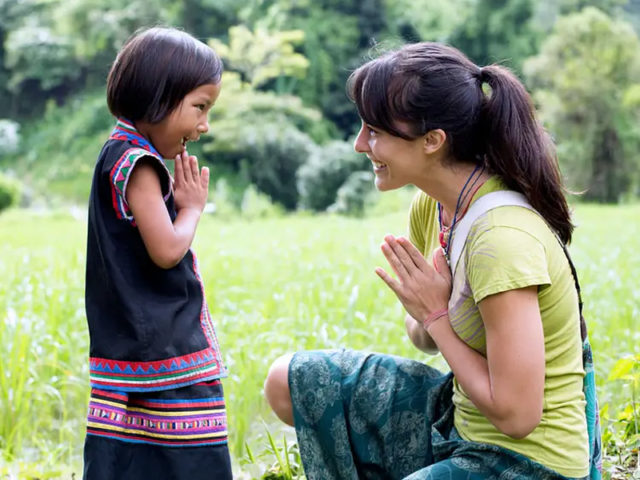10 Indian Etiquettes Every Kid Should Be Taught

In India, etiquette plays a significant role in shaping an individual’s character and behavior. Teaching children proper etiquette from a young age is essential as it helps them develop good manners, respect for others, and a sense of cultural awareness. In this blog post, we will explore ten important Indian etiquettes that every kid should be taught.
- Respect for Elders: Respecting elders is deeply ingrained in Indian culture. Children should be taught to greet and address elders with respect, using appropriate titles like “aunty” or “uncle.” They should also learn to seek blessings from their elders by touching their feet as a sign of reverence.
- Namaste: Teaching children to greet others with a namaste is a valuable etiquette. Explain to them that it is a gesture of respect and humility, where the hands are joined together in front of the chest with a slight bow. Encourage them to use namaste when meeting elders, teachers, or guests.
- Table Manners: Instilling proper table manners is crucial. Teach children to wash their hands before meals, sit properly, use utensils correctly, and chew with their mouth closed. They should learn to wait for others to start eating before they begin and to express gratitude for the meal they receive.
- Sharing and Caring: Emphasize the importance of sharing and caring for others. Encourage children to share their toys, books, and food with their friends and siblings. Teach them empathy and compassion, fostering a sense of community and kindness towards others.
- Politeness and “Please” and “Thank You”: Teaching children to use polite words like “please” and “thank you” is essential. Encourage them to say “please” when requesting something and “thank you” when receiving help or gifts. These simple words reflect gratitude and respect.
- Personal Hygiene: Help children understand the significance of personal hygiene. Teach them to brush their teeth regularly, bathe daily, and keep their nails clean. Explain the importance of maintaining cleanliness and grooming to stay healthy and presentable.
- Punctuality: Inculcating the value of punctuality is vital. Teach children to be on time for school, extracurricular activities, and social events. Explain the importance of valuing other people’s time and the positive impact it has on their own productivity and organization.
- Cultural Diversity: India is known for its rich cultural diversity. Teach children to embrace and respect the diverse customs, traditions, and festivals celebrated in different regions of the country. Encourage them to learn about other cultures, languages, and traditions with an open mind.
- Public Behavior: Educate children about appropriate behavior in public spaces. Teach them to stand in queues, give up their seats to the elderly or physically challenged, and maintain a calm and respectful demeanor. Instill the importance of public cleanliness and responsible waste disposal.
- Gratitude and Apologies: Teach children to express gratitude when receiving help, gifts, or acts of kindness. Encourage them to apologize sincerely when they make mistakes or hurt others unintentionally. Instilling the values of gratitude and apologies promotes humility and fosters healthy relationships.
By teaching these ten Indian etiquettes to children, we can help shape their character and behavior positively. Emphasizing respect, politeness, empathy, and cultural awareness from a young age lays a strong foundation for their personal and social development. These etiquettes will not only make them well-mannered individuals but also help them navigate various social situations with confidence and grace.
Picture Courtesy: Google/images are subject to copyright








